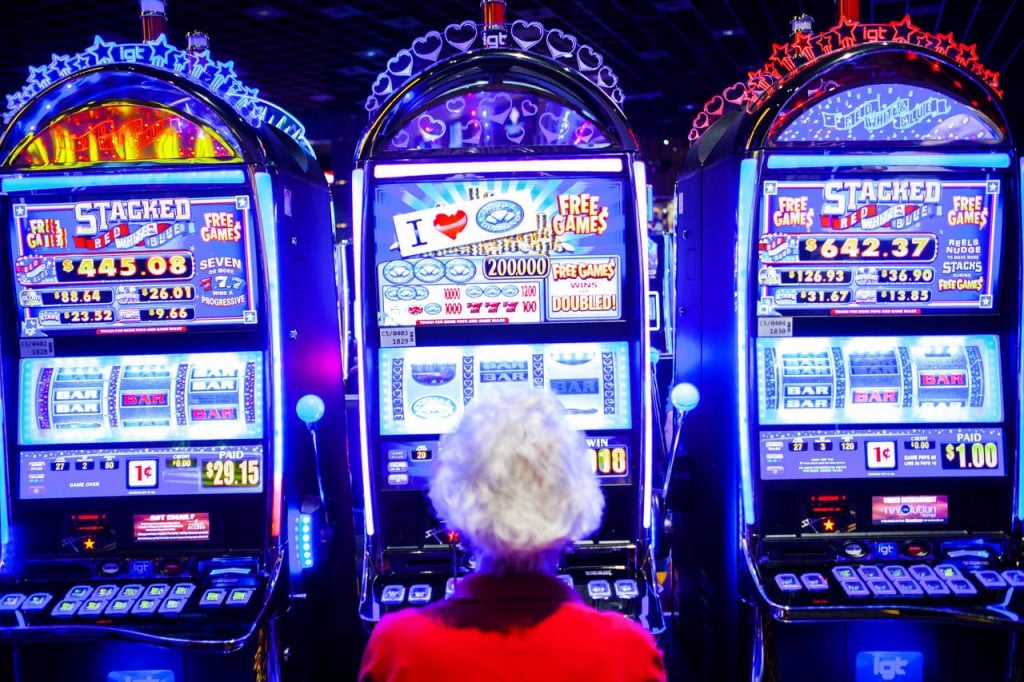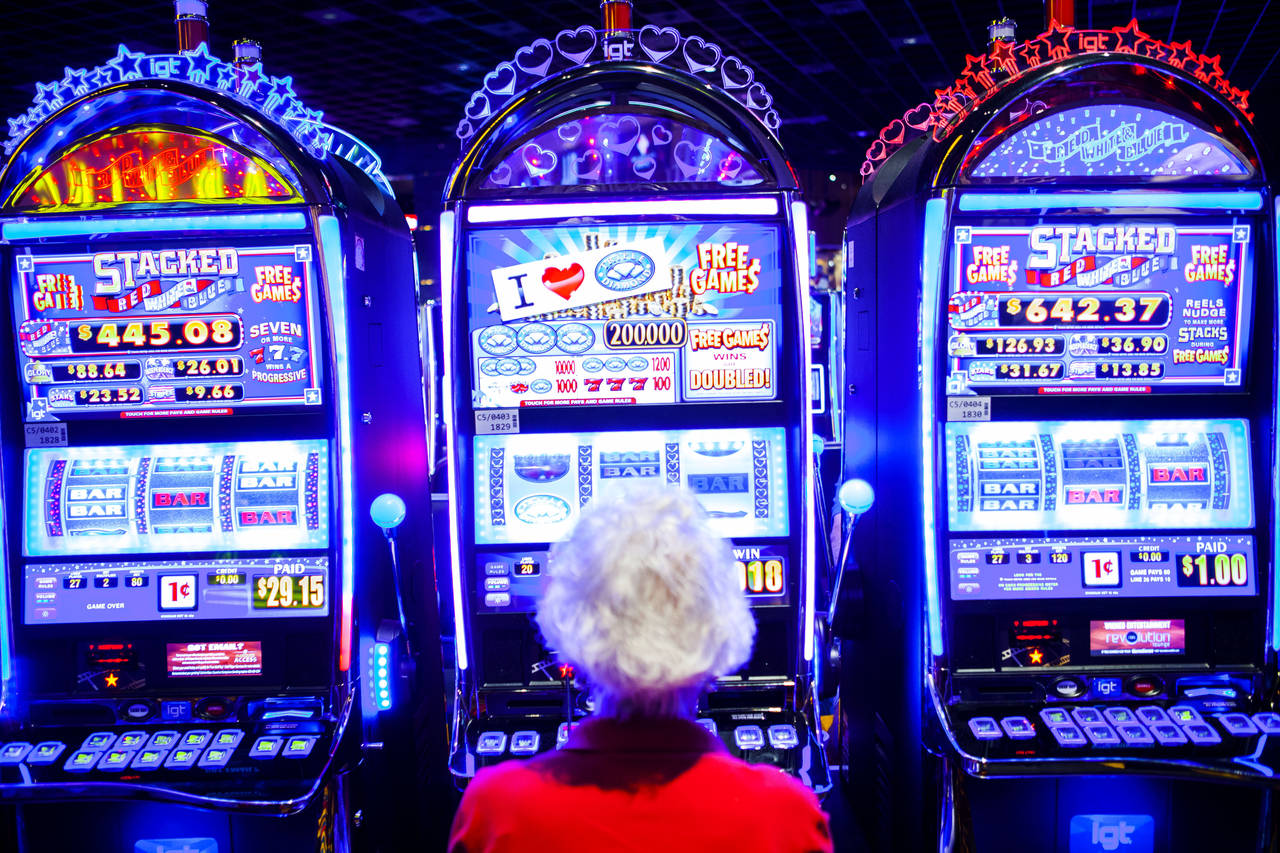VEGAS MYTHS RE-BUSTED: Slot Machines Can Be ’Due’

Posted on: June 16, 2023, 08:02h.
Last updated on: June 15, 2023, 10:35h.
EDITOR’S NOTE: “Vegas Myths Busted” now publishes new entries every Monday, with a bonus Flashback Friday edition. Today’s entry in our ongoing series originally ran on Aug. 5, 2022.
One of the most enduring myths of the casino floor is that a slot machine is more likely to hit a jackpot when it hasn’t hit for awhile because it’s “due.” Watch any busy bank of slots and you’re likely to see gamblers playing musical stools, attempting to get a feel for which machine is next to pay off big.

“Nothing could be farther from the truth,” Anthony F. Lucas, a professor of casino management at UNLV and former gaming industry operations analyst, told Casino.org. “Every possible jackpot has the same programmed chance of occurring on every spin. There is absolutely no cumulative memory of previous spins or any kind of elimination of possible outcomes on any single spin.”
411 on the 7-7-7
Every slot machine in every US casino is a video game, referred to as a virtual reel, whose results are controlled by a microprocessor. That microprocessor contains a random number generator algorithm that determines each spin outcome.
That algorithm is fixed by the slot-machine manufacturer so that no operator can alter it to pay out on a whim. Introduced in 1986 by slot-maker International Gaming Technology, this tech is now ubiquitous. Even slots that appear old-fashioned employ it. That’s because all slot machines are legally required to maintain auditing data that the old-fashioned mechanical machines couldn’t track.
Slot outcomes aren’t technically random, according to Lucas, because some symbols have less of a chance of appearing than others. “But they’re randomized,” he explained. “The probabilities are static. They never change. Your odds of hitting a jackpot on any one spin are always the same.”
So, as illogical as it seems, playing a machine only one spin after it has paid a million-dollar jackpot to someone else gives you the exact same odds of hitting a million-dollar jackpot as that lucky player before you had.
Most people just can’t seem to accept this psychologically,” Lucas said. In fact, this faulty logic has proven disadvantageous to some slot operators in the past. For example, if a regular player enters a bar in Nevada, which is limited by law to 15 machines, and sees a progressive jackpot set to its lowest value, say $10K, they will know it has just been reset because of a recent jackpot. And they will be more likely to leave that bar to play somewhere where they think the machines favor a jackpot more.
“To combat this perception, many neighborhood bars use hidden meters,” Lucas said. “They divert a little piece of every coin to a meter that no one can see. So if the progressive jackpot hits at $14,000, it will reset to something like $12,510 instead of $10,000, courtesy of this secret sum it’s accumulated.”
Wheel of Deception
Because players who believe they’re somehow able to obtain some sort of lucky advantage are likely to play more, slot manufacturers help operators take advantage of this flaw in human logic in every way they can. In fact, the entire experience of playing a video slot machine is an illusion in which the symbols fall into place in front of the player in real time like they once did on electro-mechanical machines.
But all the symbols you will see come up were already locked in when you hit the spin button,” Lucas said. “The random number generator is always running, even when the game isn’t playing. Hitting the spin button stops it and instantaneously determines the symbols that will appear. The symbols spinning and stopping on the video screen is just a façade.”
So pull the slot lever instead of hitting the button all you want. According to Lucas, this will have as much effect on the outcome as repeatedly pressing an elevator call button, “Yet you often see people touching the screen and performing a variety of antics to try to influence the outcome.”
Even the virtual wheel is designed to deceive players into thinking that winning is more likely than it is. Lucas explained: “You think, ‘Well, that wheel has got about 20 stops or so on it. And there are three reels. So if there’s one jackpot symbol on each reel, that’s 20 to the third power. So I should have a one-in-8,000 chance of hitting the jackpot, right?’”
“Wrong. Because on a virtual reel, instead of having 20 stops, slot manufacturers can make it 50 or 100, giving them considerable leeway in determining the likelihood of the jackpot as long as each spin provides the same randomized chance of hitting it.”
The One Way Slots Are Rigged
The one way slot machines are rigged is by always giving the house an average monetary advantage in the long term, Lucas said. “Although I wouldn’t use the term rigged, that’s too harsh.”
By Nevada law, a casino’s advantage cannot exceed 25%. But in most cases, according to Lucas, it’s between 4% and 10% on reel slots. A house advantage of 10% means that the operator will retain a “vig” of $10 of every $100 wagered, on average, over the long term. These percentages are fixed at the factory and offered to operators as options on every machine sold.
Operators are motivated not to reveal which of their slots pays more or pay out more often since no one would ever play the other machines. And according to a study led by Lucas and published in the journal International Journal of Contemporary Hospitality Management in 2019, even regular slot players can’t tell the difference anyway.
Lucas’ team compared two identical slot games, one with a high house advantage and one with a low one. The reason the players couldn’t detect a difference, according to Lucas, is that the player-level outcomes on the two games were too similar.
“In the short term, anything can happen, and it does,” Lucas explained, adding that the results were supported by six additional academic peer-reviewed studies. Simply put, gamblers don’t have enough time, money, or experimental discipline to detect considerable long-run differences in the house advantages of reel games.
“Some people were quite angry when the research first came out,” Lucas said. “You wouldn’t believe some of the nasty emails I received from people who said they could tell the difference. I think the results made them feel like one of their core beliefs was challenged.”
Playing the slots, like all gambling, is an experience that lends itself to mystical thinking.
“In fact, it rewards that kind of thinking,” Lucas said. “It goes to the psychology of the gambler in general. Casinos sell two things, hope and variance in the game. You put a dollar in and you could easily win $100,000. That’s the variance and the hope coming together.
“But, of course, it’s rarely the reality.”
Look for “Vegas Myths Busted” every Monday on Casino.org. Click here to read previously busted Vegas myths. Got a suggestion for a Vegas myth that needs busting? Email [email protected].
Related News Articles
Source: casino.org
